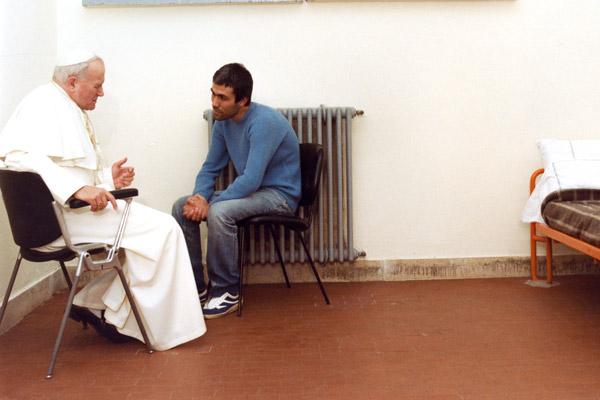

The corporal and spiritual works of mercy are transformational. While they encourage us to care for someone else who is in need, they also require from us a change of attitude, understanding and perspective.
It is not enough to simply provide our surplus food to someone who is hungry. We also are called to change the way we think about our neighbors and what we feel for them.
This is especially true for the spiritual work of mercy that calls on us to “forgive offenses willingly.” We are not only asked to forgive — a key feature of Jesus’ teaching — but we are asked to do so willingly.
It is hard enough to forgive people when they have done or said something that hurts us, but it is even harder to do this willingly, on our own volition, without being forced.
When we forgive someone it means that we let go of any and all resentment, and we return the situation to wholeness. Isaiah 43:25-26 addresses this issue: “It is I, I, who wipe out, for my own sake, your offenses; your sins I remember no more. Would you have me remember, have us come to trial?”
With forgiveness, there are no lingering ramifications or sores left to fester and cause pain later. The rift that once existed has been healed.
Jesus makes clear that his followers are to make such forgiveness a key component of their discipleship. Take for example Matthew 5:38-39 when we are told to turn the other cheek to someone who strikes us.
We are told to “love your enemies, and pray for those who persecute you” (Matthew 5:44), so that we may be children of our heavenly Father (Matthew 5:45). We are called to be “perfect, just as your heavenly Father is perfect” (Matthew 5:48).
This willing forgiveness must be ongoing. In Luke 17:4 Jesus teaches his disciples to forgive all the time: “And if he wrongs you seven times in one day and returns to you seven times saying, ‘I am sorry,’ you should forgive him.”
In Matthew, this teaching is expanded to 77 times (Matthew 18:22), or always. In order to forgive so freely and so often, we have to put on Christ, to become like God.
Luke 15:11-32 is the familiar story of the prodigal son, but it also could be called the “unforgiving brother,” for the wayward son’s older brother plays a crucial role in the parable because of his unwillingness to forgive.
He is resentful and holds a grudge against his brother but also against his father, who is so forgiving. The son cannot partake of the feast because of his inability to forgive.
This is the point of learning to forgive willingly: Until we learn to do so, we won’t be able to partake fully in God’s great gift of mercy that is there for us to receive.
We have each been forgiven willingly by God 70 times seven times. Why are we so reluctant to do the same for our brothers and sisters?
Please read our Comments Policy before posting.
Article comments powered by Disqus When it’s time to let go of pain and begin healing
When it’s time to let go of pain and begin healing
 How to forgive someone who hurts you and find peace
How to forgive someone who hurts you and find peace
 Catholics share stories of suffering and finding forgiveness
Catholics share stories of suffering and finding forgiveness
 Why should I forgive someone anyway?
Why should I forgive someone anyway?
 Year in Review 2016: a merciful universal Church
Year in Review 2016: a merciful universal Church
 Winning directory photo honors Our Lady of Guadalupe
Winning directory photo honors Our Lady of Guadalupe
 St. Paul says: How does the Bible define love?
St. Paul says: How does the Bible define love?
 6 steps to getting married in Diocese of Little Rock
6 steps to getting married in Diocese of Little Rock
 Most frequently asked questions on Catholic marriage
Most frequently asked questions on Catholic marriage
 St. Joseph a model of solidarity with immigrants
St. Joseph a model of solidarity with immigrants
 Two gifts after Jesus’ death: Virgin Mary and Eucharist
Two gifts after Jesus’ death: Virgin Mary and Eucharist
 Why we have an altar, and not just a communion table
Why we have an altar, and not just a communion table
 Pope: Wars should be resolved through nonviolence
Pope: Wars should be resolved through nonviolence
 Living relationship with Jesus Christ in the Eucharist
Living relationship with Jesus Christ in the Eucharist